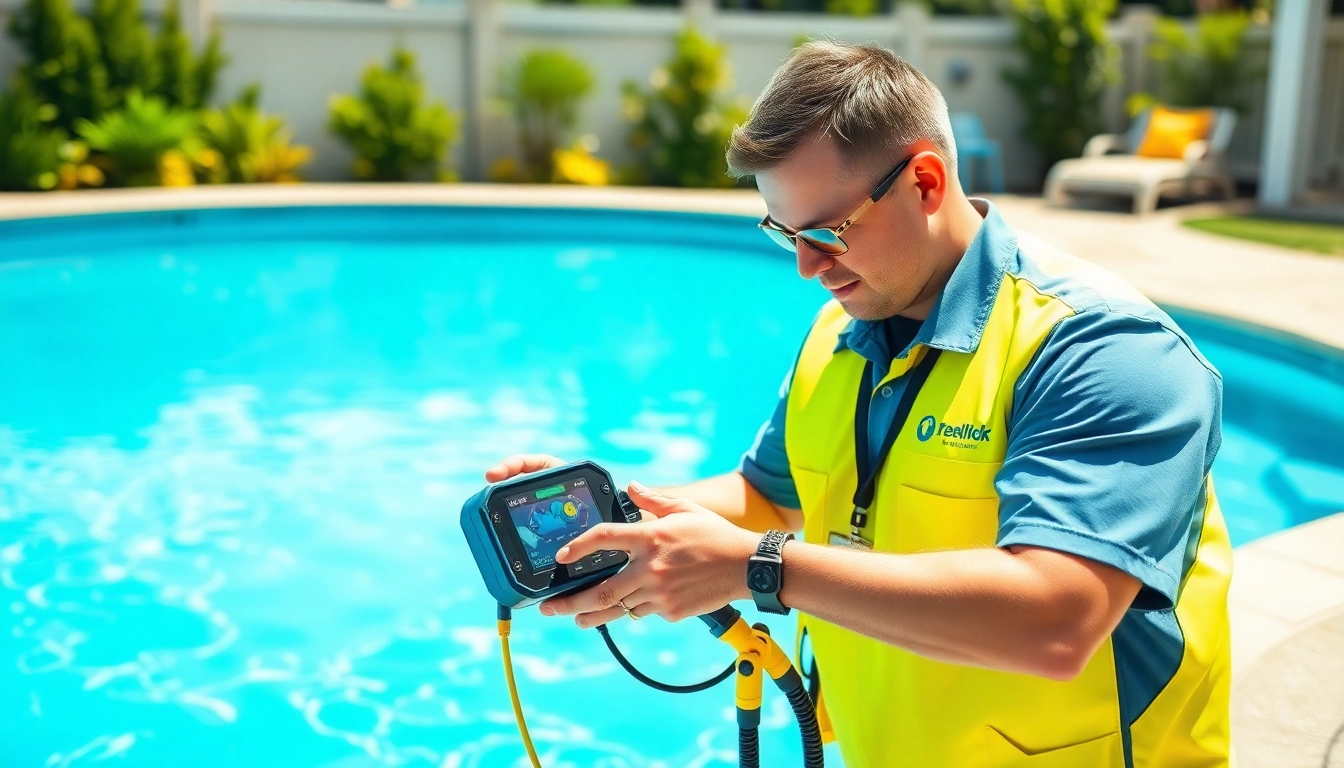Understanding Swimming Pool Leak Detection
Swimming pool ownership comes with the joy of recreation and relaxation, but it can also present challenges, one of the most significant being leaks. Understanding Swimming Pool Leak Detection is crucial for maintaining the integrity of your pool and ensuring a safe swimming environment. This article delves into the causes of leaks, the signs indicating you may have one, and the importance of timely leak detection.
What Causes Leaks in Swimming Pools?
Leaks in swimming pools can arise from various sources. Understanding these causes helps pool owners take preventive measures. Some common causes of leaks include:
- Punctures and Cracks: Over time, the materials used in pool construction, whether vinyl, fiberglass, or concrete, can develop cracks or punctures due to ground movement or weather conditions.
- Plumbing Issues: Leaks can occur in the plumbing system connected to your pool. Loose fittings, deteriorating pipes, or damaged seals can contribute to significant water loss.
- Pool Equipment Failures: Filters, heaters, and pumps are essential for your pool’s operation. If any of these components fail or develop leaks, it can lead to reduced water levels.
- Hydrostatic Pressure: When groundwater exerts pressure on your pool structure, it can lead to leaks, especially in vinyl-lined pools that are not properly installed.
Signs You May Have a Leak
Identifying a leak early can save time and money. Here are key signs that may indicate a leak in your pool:
- Unexplained Water Loss: If you consistently have to add water to your pool to maintain its levels, that’s a red flag.
- Wet Spots Around the Pool: If you notice puddles of water around the pool or in the surrounding yard, it could be a sign of a leak.
- Increased Water Bill: An unexpected rise in your water bill may suggest that your pool is leaking.
- Algae Growth: If algae or other unwanted growth appears more frequently despite regular maintenance, it may indicate water loss affecting chemical balance.
The Importance of Timely Leak Detection
Addressing leaks promptly is essential for several reasons:
- Preventing Further Damage: A small leak can lead to larger problems, including structural damage to your pool and deck, increased maintenance costs, and damage to landscaping.
- Water Conservation: Pools lose a significant amount of water due to leaks, impacting water conservation efforts and subsequently increasing utility bills.
- Maintaining Chemical Balance: A loss of water can skew the chemical balance of your pool, leading to issues with algae growth and decreased water quality.
- Safety Risks: Eventually, leaks can pose structural risks, leading to collapses or hazardous situations around the pool area.
DIY Techniques for Swimming Pool Leak Detection
For homeowners determined to tackle potential leaks independently, a few DIY techniques can help pinpoint the issue before professional intervention is necessary.
Bucket Test: An Easy First Step
The bucket test is a simple, yet effective method to determine whether water loss is due to evaporation or a leak. Here’s how to perform it:
- Fill a bucket with water, and mark the water level inside the bucket.
- Next, place the bucket on the first step of your pool, ensuring it’s submerged to the marked level outside the bucket.
- After 24 hours, compare the water levels inside and outside the bucket. If the pool’s water level drops significantly more than the bucket’s, you likely have a leak.
Visual Inspections: Spotting Common Issues
Conducting a thorough visual inspection can reveal visible signs of leaks. Focus on:
- Check the pool’s surface for cracks, blisters, or any signs of wear.
- Inspect the pool equipment, including pump seals and connections.
- Examine the tile grout and coping for any gaps or cracks.
Using a flashlight can help illuminate dark areas where leaks may be hiding.
Dye Testing: A Simple DIY Method
Dye testing is particularly effective for finding leaks in specific areas, especially in plumbing or fixtures. The process involves adding a few drops of food coloring near suspected leak areas and observing any movement toward the leak source.
Make sure to conduct this test when the pool is still and calm, as waves can complicate results.
Advanced Swimming Pool Leak Detection Methods
If DIY methods do not yield results, advanced techniques may be necessary for pinpointing leaks accurately.
Pressure Testing Techniques Explained
Pressure testing involves assessing the integrity of the plumbing system. Professionals apply air or water pressure to pipes and monitor for drops in pressure, indicating leaks. This technique is essential for plumbing lines that may not be easily accessible.
Acoustic Detection: How Sound Can Identify Leaks
Acoustic detection utilizes specialized equipment that listens for water escaping from pipes. The equipment can detect the sound of leaking water, often leading technicians directly to the leak’s source. This method is particularly useful for underground or difficult-to-access areas.
Thermal Imaging: Seeing the Unseen
Thermal imaging cameras detect temperature differences caused by leaking water. This method provides a non-invasive way to identify leaks behind walls or under decks, effectively minimizing disruption to your landscaping or pool area.
Hiring Professionals for Swimming Pool Leak Detection
When DIY methods and advanced techniques fail to locate the leak, hiring a professional may be the best course of action. Professionals bring expertise and specialized equipment that significantly increase the chances of finding and fixing your leak quickly and efficiently.
Benefits of Professional Services
Consider the following benefits of hiring leak detection experts:
- Specialized Equipment: Professionals often have access to advanced technology, such as acoustic devices and thermal imaging cameras, that are not geared for residential use.
- Experience: With extensive experience, professionals know what to look for, potentially saving you time and money.
- Comprehensive Assessments: Experts can conduct thorough examinations of your pool and all its systems, identifying problems you may have missed.
What to Expect During the Process
When hiring a leak detection specialist, expect the following process:
- The technician will conduct a preliminary inspection, including visual assessments and initial tests to gauge the suspected location of the leak.
- Next, they will employ advanced techniques, such as pressure testing or thermal imaging, to locate the leak.
- Upon identifying the source, they will provide recommendations for repair and associated costs.
Cost Considerations and Estimates
The cost of professional swimming pool leak detection can vary widely based on the complexity of the leak and the technology utilized. On average, homeowners can expect to pay between $100 to $500 for leak detection services. Significant savings can be realized by addressing the leak early versus waiting for damage to occur.
Maintaining Your Pool After Leak Detection
Finding and repairing leaks is only part of pool ownership. Maintaining your pool’s integrity and functionality is equally important. Here are some essential maintenance strategies to prevent future leaks.
Repairing Common Leak Issues
Once leaks are identified, addressing them promptly is critical:
- Patch Small Cracks: Use appropriate sealants designed for your pool type to patch minor cracks and holes.
- Replace Damaged Equipment: If equipment is found to be leaking, replacing it before it fails completely is a wise investment.
- Realign Plumbing: Consult professionals to ensure your plumbing is adequately aligned and secured to prevent future leaks.
Preventative Measures to Avoid Future Leaks
Incorporating regular checks and maintenance routines can drastically reduce the likelihood of leaks:
- Regular Inspections: Schedule routine inspections of your pool and equipment, looking for signs of wear or deterioration.
- Monitor Chemical Balance: Regularly check and adjust the chemical balance to maintain the integrity of pool materials.
- Cover During Off-Season: Use a pool cover during the off-season to protect from debris and weather-related damage.
Regular Maintenance: Keeping Your Pool Leak-Free
Engaging in regular maintenance practices is key to preventing leakage and maintaining a comfortable swimming environment. Implement cleaning schedules, regularly check pool chemistry, and ensure all equipment is functioning optimally. Regular attention can ultimately help save time, money, and enhance your pool experience.




